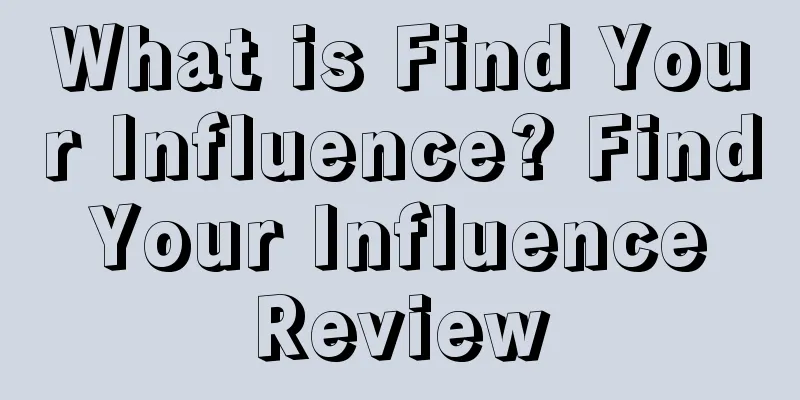AI will bring a trillion-dollar increase to the retail industry! Amazon and Walmart will benefit the most!

|
According to the latest Retail AI Readiness Index released by the analysis company IHL Group, artificial intelligence will bring more than $1.5 trillion in additional growth to the wholesale North American retail industry by 2029. Among them, Amazon and Walmart are expected to receive more than $580 billion, accounting for 38.5% of the total. The report notes that slightly less than half of this growth will be created by generative AI, which is based on machine learning (ML) and can create new content and ideas, including conversations, stories, images, videos and music. The Retail AI Readiness Index provides a comparison of AI readiness scores and the potential financial impact on each company in terms of sales growth, gross margin improvement, and selling/general administrative cost improvements. The study includes rankings of the top seven companies in the following market segments: fast-moving consumer packaged goods (grocery, mass merchandisers, warehouse clubs), apparel/footwear, hard goods (home improvement, electronics, pets, sporting goods, furniture), health and beauty (drugstore and cosmetics), restaurant chains (fast food and table service) and pure-play e-commerce companies (companies that sell entirely online or have very few physical stores compared to total sales), as well as a total of 212 public companies. Next-generation artificial intelligence will bring an additional $9 trillion to North American retail industry While generative AI currently accounts for only 9% of the retail industry’s overall financial impact, by 2029, generative AI will account for 78% of the overall financial impact, reaching $4.4 trillion. IHL’s research found that the benefits of generative AI will come primarily from three areas: increased sales (51%), improved gross margins (20%), and reduced selling and administrative (S&A) costs (29%). According to IHL’s forecast, by 2029, 47% of AI’s cumulative impact will come from traditional AI/ML technologies in closed systems, 48% from generative AI capabilities, and 5% from AI tools launched in the next decade. Greg Buzek, President of IHL Group, commented: “AI is already transforming the retail market by improving upon traditional AI/ML. Generative AI simply adds rocket fuel to this potential financial impact. This financial impact depends on whether a company’s data and structure are ready to take advantage of advanced technologies, as well as the scale and free cash flow to invest in these technologies. The truly exponential impact occurs when generative AI is added to the hard work companies do to clean, label and manage core data such as customer, inventory and product data for traditional AI/ML applications.” Editor ✎ Nicole/ Disclaimer: This article is copyrighted and may not be reproduced without permission. |
<<: Q2 revenue and profit both exceeded expectations! Walmart raises full-year performance guidance!
Recommend
What is MOLPay? MOLPay Review
MOLPay was established in Malaysia at the end of 2...
A complete guide to creating a hit product on Amazon in 30 days
This issue's useful information A complete gu...
What is Jianyihui? Jianyihui Review
Jianyihui is a comprehensive service platform inte...
What is threegemstea? threegemstea review
threegemstea is dedicated to a tea break and tea s...
Revenue cut in half! Zebao "cuts off" from Amazon, Youkeshu's assets seized
It is learned that recently, Xinghui Shares, the p...
What is BridgeEasy Loan? BridgeEasy Loan Review
Qiaoyidai is an offshore financing product special...
The strongest audit in history? Amazon starts a new round of account verification
In recent times, the "destined people" w...
New trend of live shopping: 61% of American consumers actively participate in live shopping
Recently, VTEX released a new study on live shoppi...
Will Amazon open an offline department store? Target adds 4 new picking centers to enhance competitiveness!
Target is reportedly shortening the time of its on...
What is Honeycomb SCRM? Honeycomb SCRM Review
Hive SCRM (social fan management) will open up the...
Sellers, please note! The freight rates of the three major North American logistics companies will increase in 2022!
<span data-shimo-docs="[[20,"获悉,据外媒报道,联邦快递...
Three tips for optimizing Amazon ad titles to increase conversion rates!
Most sellers consider increasing natural search tr...
What is Youpinghui? Youpinghui Review
Youpinghui was founded in 2016 and is committed to...
What is AmaSuite? AmaSuite Review
AmaSuite helps sellers discover products and keywo...
What is AMZ Magic Wheel? AMZ Magic Wheel Review
AMZ Magic Wheel (https://amzmo.com) is a product s...









